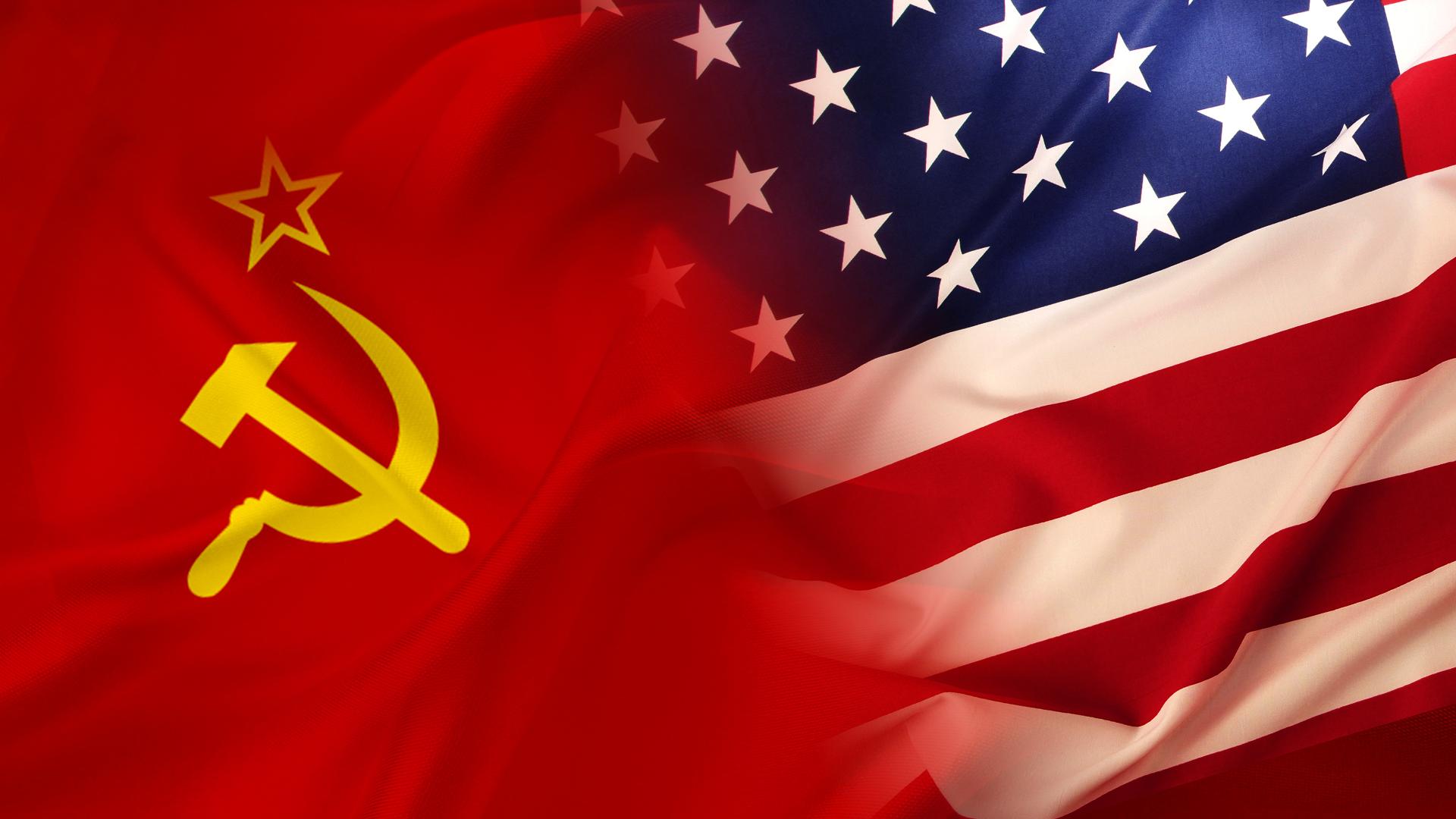Mikhail Gorbachev: World leaders pay tribute to Mikhail Gorbachev
- Published
- comments
Mikhail Gorbachev: Who was he and how did he change the world?
World leaders have been paying tribute to Mikhail Gorbachev, the former Soviet Union leader, who has died aged 91.
He was the last leader of the Soviet Union, a gigantic country dominated by Russia, before it collapsed.
Mr Gorbachev is one of the most well known political leaders of the 20th century, and is often credited with helping to bring an end to the Cold War.
He died in a hospital in Moscow after a long illness.
UK Prime Minister Boris Johnson said: "I'm saddened to hear of the death of Gorbachev. I always admired the courage and integrity he showed in bringing the Cold War to a peaceful conclusion."
Who was Mikhail Gorbachev?
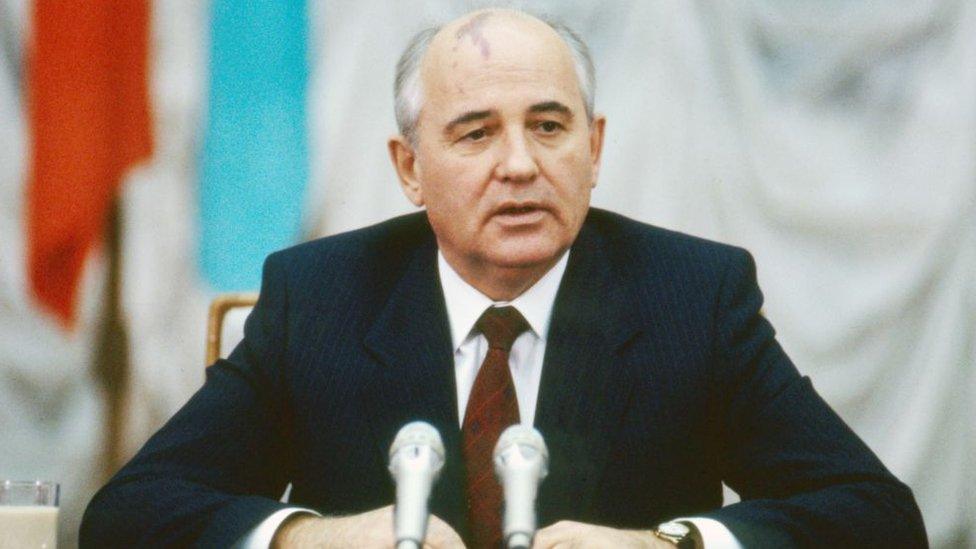
Mikhail Gorbachev was born on 2 March 1931 in the Stavropol region of southern Russia.
Mr Gorbachev became the last leader of the Soviet Union in 1985. He was an important leader in the 1980s and 1990s.
The Soviet Union was a communist country which was dominated by Russia.
It was formally known as the Union of Soviet Socialist Republics (the USSR), was made up of lots of countries such as Russia, Ukraine and Latvia.
Armenia, Azerbaijan, Belarus, Estonia, Georgia, Kazakhstan, Kyrgyzstan, Latvia, Lithuania, Moldova, Russia, Tajikistan, Turkmenistan, Ukraine, Uzbekistan
The Soviet Union did not agree with western, capitalist countries (like the UK and the US) and their way of doing things.
For this reason there was tension and division between them for many years during the 20th century - with the USA and its allies, including the UK, on one side, and on the other, the Soviet Union and its allies.
Although this divide was mainly in terms of policies and ways of doing things, physical evidence of it could also be seen, for example the Berlin Wall in Germany.
Watch: The story of the Berlin Wall
After WW2, Germany and Berlin were divided up, with areas given to the USA, UK, France and Russia to occupy. The country was divided into West Germany and East Germany with new borders.
The capital city of Berlin was also split between them. In 1961 a huge wall was put up to divide the areas controlled by the British, French and Americans - West Berlin - from the territory occupied by the Soviet Union - East Berlin.
The Cold War
The Cold War wasn't a war that involved physical fighting but more a war of words between two different ideas and ways of government - communism (the east) and capitalism (the west).
But these very different ways of doing things led to tension, and on some occasions it looked like there was the potential for a serious conflict.
This started in the 1940s, and lasted until 1991, when the Soviet Union collapsed and 15 newly independent nations were born.
When Mr Gorbachev became leader in 1985, he was different to other Soviet Union leaders. He laughed, smiled and went out of his way to meet people.
The new leader introduced more popular policies, restructuring the economy and promoting more freedom of speech. Up until this point, what people could and couldn't say was strictly controlled by the Soviet government.
Mr Gorbachev wanted better relations with leaders from the USA and UK, in order to make war much less likely.
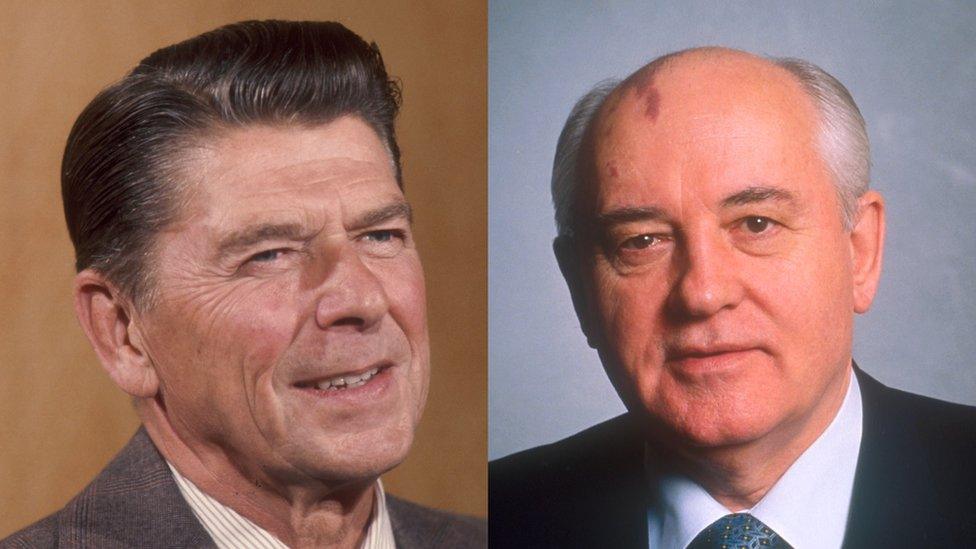
The arrival of these two leaders - US President Ronald Reagan in 1980 and USSR leader Mikhail Gorbachev in 1985 - changed the course of the Cold War
He made a weapons deal with the US President at the time, Ronald Reagan, where they agreed to limit the production of nuclear weapons.
By the end of 1980s, the increased freedom and openness that Gorbachev had promoted in the Soviet Union began to spread across Eastern Europe.
When people had the freedom to speak, it became clear that some of them didn't want to be in a block of countries dominated by Russia, and be divided by walls. They began to protest against the Soviet system.
Gorbachev was faced with a choice - he could send in soldiers, as the Soviet Union had done in the past, or he could let people have their way.
He chose peace, and the walls and fences came down.
This led to the end of the Cold War. Eventually it also ended the Soviet Union, as countries like Ukraine became independent from Russia for the first time.
Western countries, like the UK and US, see Mr Gorbachev's reforms as opening up the Soviet Union to the world.
But some Russians see this as a bad thing, and blame him and his policies for the end of the USSR.
World leaders pay tribute
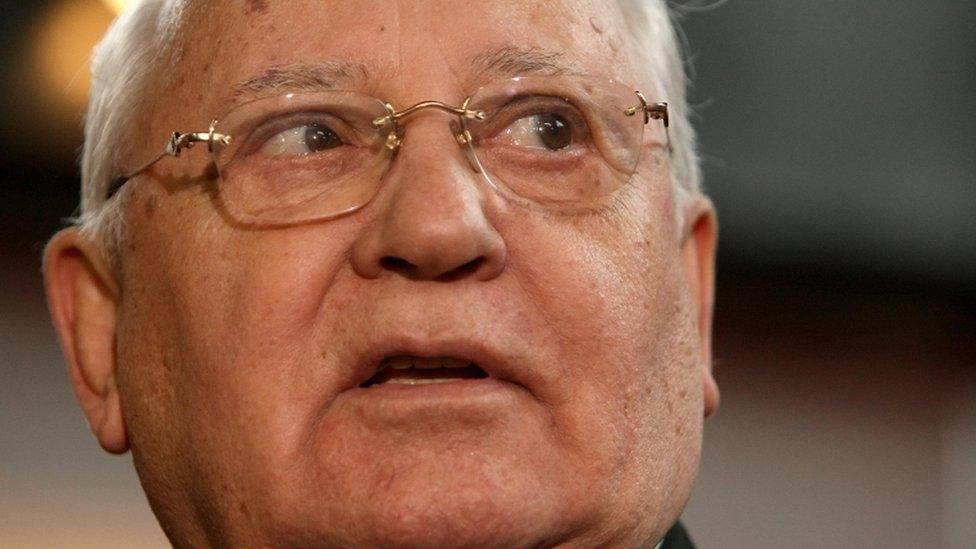
World leaders pay tribute to Mikhail Gorbachev
Russian President Vladimir Putin has expressed his deepest condolences following Mr Gorbachev's death, his spokesman Dmitry Peskov said.
UK Prime Minister Boris Johnson said he admired the former leader's courage, adding: "In a time of Putin's aggression in Ukraine, his tireless commitment to opening up Soviet society remains an example to us all."
US President Joe Biden called him a "rare leader" and praised him as someone who had the "imagination to see that a different future was possible" amid the tensions of the Cold War.
UN Secretary General Antonio Guterres posted on Twitter: "Mikhail Gorbachev was a one-of-a kind statesman who changed the course of history."
European Commission President Ursula von der Leyen has also praised him as a "trusted and respected leader" who "opened the way for a free Europe".
"This legacy is one we will not forget," she added.
- Published8 March 2022
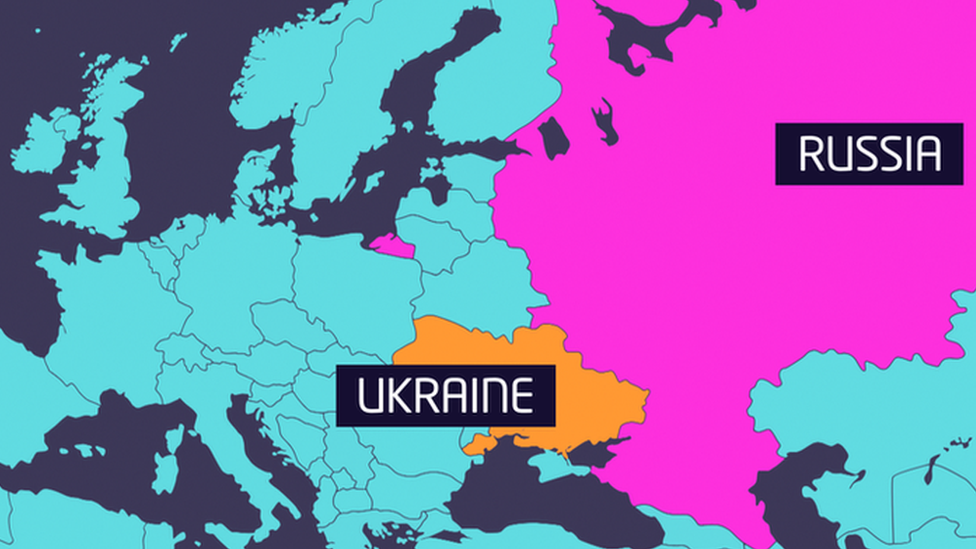
- Published23 May 2019
